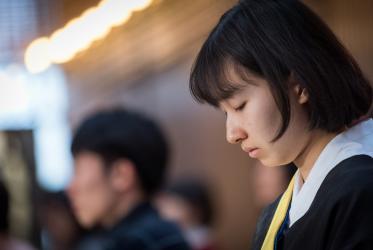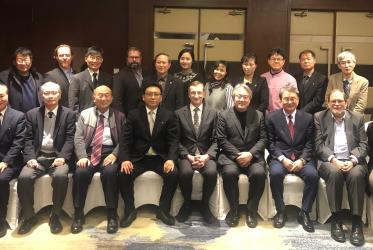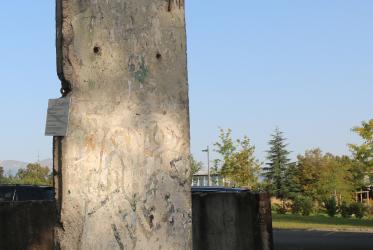Displaying 101 - 120 of 716
Worldwide prayer campaign begins to end 70-year Korean War
06 February 2020
Young Africans are eager to grapple with challenges
09 January 2020
Religious leaders keep vision of peace alive on Korean Peninsula
10 December 2019
WCC delegation meets with Korean prime minister
19 November 2019
Tveit: “Love is about the future: Where are we going from here?”
17 November 2019
South Sudan Council of Churches: peace “is a question of the heart”
11 November 2019







